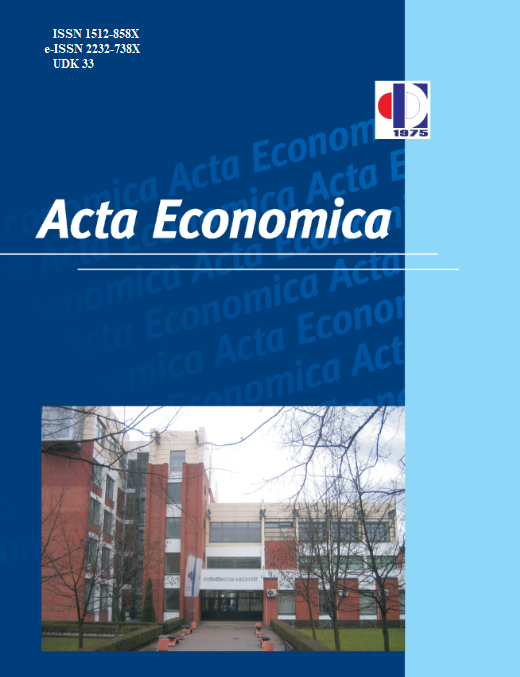Међуусловљеност политике опорезивања и развоја МСП сектора: Емпиријска студија у Републици Српској // Interdependence between tax policy and development of the SME sector: An empirical study in the Republic of Srpska
DOI:
https://doi.org/10.7251/ACE1523009PAbstract
Резиме: Мала и средња предузећа (МСП) све више су предмет интересовања и подршке влада развијених земаља у којим ова предузећа представљају један од фактора који утиче на привредни развој. Бројни екстерни и интерни фактори утичу на формирање, пословање, раст и развој МСП. Развијене земље свијета стављањем МСП у фокус својих економских стратегија и програма, конкретним мјерама макроекономске политике, као што је циљана фискална политика према МСП кроз пореске олакшице и посебне шеме опорезивања, директно утичу на смањење трошкова пословања, побољшањe ликвидности и конкурентског положаја малих и средњих бизниса. Ипак, Босна и Херцеговина (БиХ), односно Република Српска (РС), још не усвајају пореске политике и праксе многих развијених земаља широм свијета, па тако не посвећују довољно пажње унапређењу сектора МСП. Циљ овог истраживања је дефинисање фактора у сфери пореске политике, који демотивишу и успоравају опстанак, раст и развој сектора МСП. Истраживање је спроведено на територији 5 градова и 16 општина у Републици Српској на узорку од 199 МСП. Установили смо да 93,96% узоркованих предузећа сматра да је администрирање пореза компликовано и скупо, док 92,96% сматра да су порески прописи који су тренутно на снази сложени и компликовани. Да би увођење готовинског обрачуна пореске обавезе за ПДВ допринијело њиховом пословању кроз: повећање промета, повећање услужног асортимана и повећање производног асортимана сматра 83,42% МСП. Чак 85,93% испитаника сматра да би ишло у прилог њиховом пословању ако би у прве три године од оснивања стопа пореза на добит била нижа, док 69,35% сматра да је стопа пореза на добит висока. Допринос у пословању у случају увођења кварталног подношења ПДВ види 65,33% испитаника.
Summary: Small and medium sized enterprises (SMEs) are increasingly the subject of interest and support of the governments of developed countries in which these businesses are one of the factors that influence the economical development. Many external and internal factors influence on the establishment, operation, growth and development of SMEs. The developed countries of the world put SMEs in the focus of their economic strategies and programs with specific macroeconomic policies measures, such as targeted fiscal policy to SMEs, tax exemptions and special taxation schemes that directly affect the reduction of operating costs, improve liquidity and competitiveness of small and medium-sized businesses. Nevertheless, Bosnia and Herzegovina and the Republic of Srpska, still do not adopt tax policies and practices of many developed countries around the world, so not enough attention is being paid to the improvement of SMEs. The aim of this study is to define the factors in the area of tax policy, which discourage the survival and slow down the growth and development of SMEs. For this purpose, we have implemented quantitative research in the area of 5 cities and 16 municipalities in the Republic of Srpska on the sample of 199 examinees. Based on the results of our empirical study analysis, we came to a conclusion that 93,96% of the sampled SMEs believe that tax compliance is complicated and expensive, while 92,96% believe that tax laws are complex and complicated. That introduction of cash accounting for VAT will contribute to their business through increased turnover and enlarged range of services and products is considered by 83,42% of SMEs. Even 85,93% of the examinees think it would contribute to their business if they had a lower tax rate in the first three years after its establishment, while 69,35% of the examinees believe that the income tax rate is high. Introduction of the quarterly VAT filing is seen as a contribution to their business by 65,33% of the examinees.

